Community Health System board chair Farid Assemi steps down, but many members still tied to him
Community Health System board chair Farid Assemi has stepped down from the hospital’s governing body, but community members remain concerned with the makeup of a board that continues to be filled with several members tied to the influential developer and farmer.
And now there is an additional concern for some.
Assemi’s departure means that the board that governs the region’s largest health care provider is being led by someone who lives 2,000 miles away.
The new hospital board chairman is Roger Sturdevant. Sturdevant owns a home in Clovis, but he lives in Michigan, where he voted in the most recent November 2022 elections, public records show.
Sturdevant assumed his role as chairman on April 12. Sturdevant didn’t respond to multiple inquiries by The Bee seeking comment, either to address concerns about his residency or the direction he would like to lead Community Health System, which has been under scrutiny in the wake of a Fresno Bee investigation into CHS and its board members. Many still refer to CHS as Community Medical Centers, its former name.
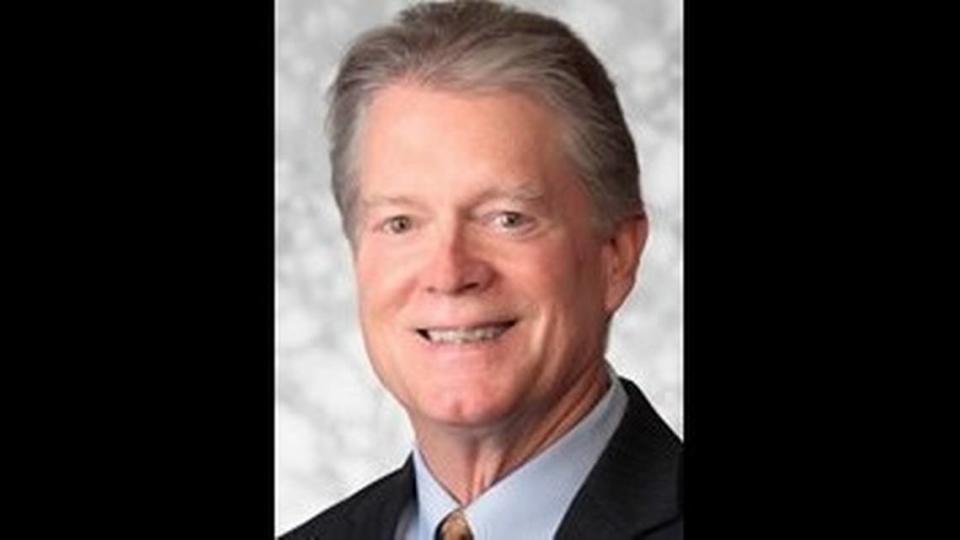
The investigation revealed that CHS used federal and state funding generated by the downtown Fresno hospital for treating Medi-Cal and uninsured patients to fund a massive expansion of its Clovis campus in an affluent area. Less than a mile away from the Clovis hospital sits California Health Sciences University — a for-profit medical school owned by Assemi and Flo Dunn, another longtime CHS board member who continues to sit in on CHS board meetings as a guest.
Community members who spoke with The Bee, including a local elected official, said changes on the board have only exacerbated concerns that the nonprofit hospital corporation is not serving the interests of Fresno. The ascension of Sturdevant only furthers these concerns, they say.
Dr. Ren Imai, who resigned as a board member for CHS in December 2020, said having a person who doesn’t live in the community lead the hospital board is problematic. His concern has been echoed by others, including Fresno City Councilmember Miguel Arias, who said “it is alarming that the future” of the hospital “is in the hands of an out-of-state retired banker.”
“I think it raises questions about the governance of the board to have someone who is not even a resident of the area,” Imai told The Bee. “What does he care about health care here?”
When The Bee did not hear from Sturdevant, efforts were also made to reach him through Michelle Von Tersch, a spokeswoman for CHS, and through a number listed for one of his son’s businesses. Von Tersch didn’t acknowledged The Bee’s email, a subsequent call and a voicemail.
Previously, on April 12, Von Tersch said “neither bylaws or IRS rules require trustees to be full-time residents of Fresno County.”
Former board member Kevin Follansbee said he doesn’t believe the bylaws or rules require board members to be local residents. There can be non-local people on the board, he said, especially if they bring a specialty or certain experience other board members don’t have. Sturdevant is a retired Bank of the West executive.
Follansbee said that during his service on the board all members were local citizens from Fresno and nearby communities that are served by the hospital.
“During my tenure on the board,” he said, “there was never someone from out of the area serving on the board.”
Sturdevant’s position on the board also fuels another ongoing concern among community members that too many board members are either real estate developers, have deep ties to Assemi or do business with the hospital. Sturdevant oversaw Bank of the West’s farm lending division in Fresno. CHS board member Susan Abundis, who is Assemi’s former banker, worked in the same bank division.
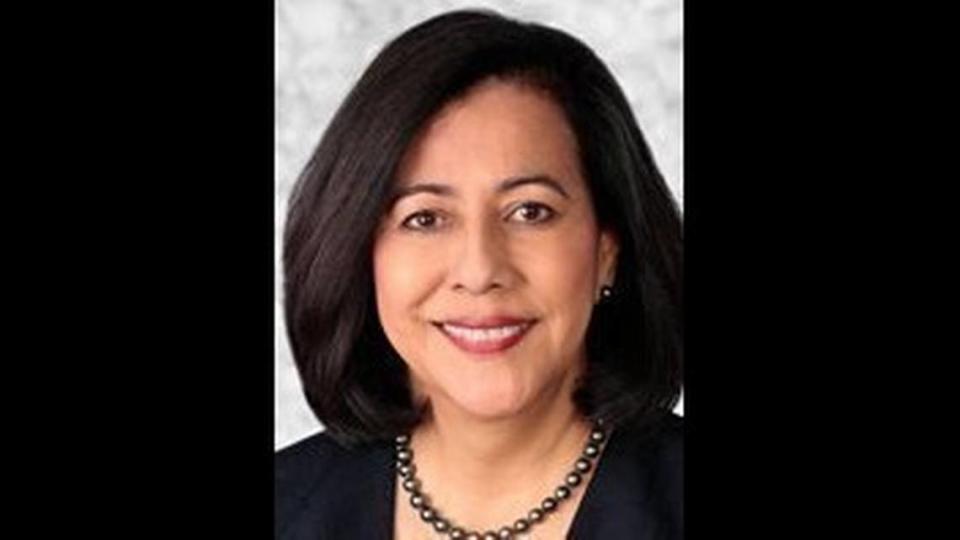
Dunn is also Assemi’s former banker, but she worked at different banks.
In 2009, the hospital contracted The Governance Institute to review its board. At the time, several board members had concerns about those on the board who had “personal agendas or interests in certain projects.”
Three developers join board while Assemi served as chair
Three of four new board members who joined under Assemi’s tenure as chair are developers, and at least two of them are closely connected to Assemi. That’s in addition to CHS board member Karen McCaffrey, who is vice president of McCaffrey Homes, and other sitting board members tied to him.
Councilman Arias, whose district covers Community Regional Medical Center in downtown Fresno, said since The Bee’s investigation was published, his office has been in touch with federal healthcare officials, California Attorney General Rob Bonta, state representatives and CHS leadership “on the alarming findings.”
CHS operates four medical facilities: Fresno Heart and Surgical Hospital, Community Behavioral Health Center, Clovis Community Medical Center and Community Regional Medical Center in downtown Fresno.
“Instead of addressing the legitimate community concerns,” Arias told The Bee, “their leadership has doubled down on its strategy to stack the board with special interest development instead of independent medical expertise and community stewards with a commitment to the underserved and the most vulnerable patients in our city.”
About 11 of the 13 current CHS board members either have a connection to Assemi or the physician board members do business with the hospital or are a provider in the hospital’s health insurance plan, or work under the hospital’s newly established medical foundation.
The Bee made an effort to contact Assemi directly, outside of the hospital, after CHS didn’t respond to questions about what prompted him to step down, and whether he would still be allowed to sit in on board meetings. However, an email to an assistant at the Assemi Group was answered by Von Tersch, saying Assemi wasn’t available for an interview.
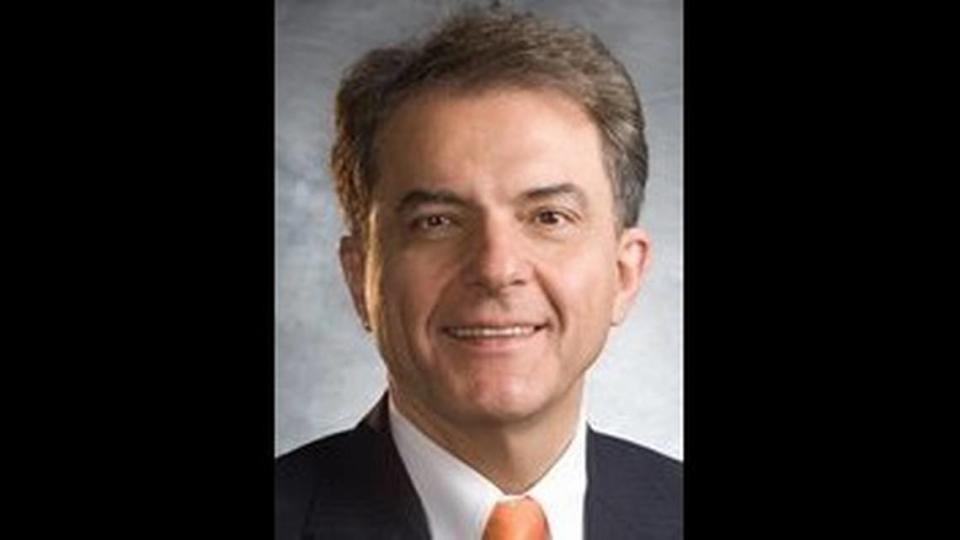
Von Tersch on April 12 chose not to answer specific questions by The Bee related to the makeup of the board, but provided this general written statement.
“The questions about the percentage of developers or connections to the Assemi family on our Board are based on inaccurate assumptions,” she said in the statement. “The Board also follows specific IRS rules for non-profit hospitals regarding physician trustees.”
Those who have been critical of the direction CHS has taken under Assemi’s leadership are most concerned with what they believe is a lack of commitment to the downtown Fresno hospital that largely serves the city’s most vulnerable residents. Instead, they see much-needed resources diverted to the affluent Clovis campus near Assemi’s for-profit medical school.
For several years, CHS had plans to build two new patient towers at its downtown hospital in order to bring its aging facilities into compliance with earthquake standards, The Bee’s investigation found. But those towers were never built there.
The new patient towers were built at the Clovis campus as part of the explosive expansion. Meanwhile, the downtown Fresno hospital now risks losing 90% of its acute care beds if its deteriorating buildings don’t see major upgrades by 2030.
“If the (CHS) Board continues down this path unchecked, it will lead to a structural or financial collapse, and ultimately closure of our downtown Fresno hospital,” Arias warned. “Our city residents, (CHS) staff, and patients deserve better.”
Von Tersch again denied conflicts of interest on the board, and said the board ensures the hospital’s “resources are used in the community’s interest.” She said the board’s bylaws and related policies follow state and federal law, such as when conflicts of interest arise.
Von Tersch wouldn’t release to The Bee a copy of its board bylaws, nor would she say whether those bylaws have been updated, and if so, when.
Trustees serve three-year terms, she said, and may be reappointed for up to four consecutive terms, meaning 12 years. This was Assemi’s 14th year on the board.
Von Tersch also did not answer specific questions about the process undertaken to recruit and select board members or if there is a public application involved.
“The Board recruits new members as positions come open,” she said in the statement, “always seeking to maintain a robust mix of backgrounds, such as physicians, farmers, finance experts, education leaders, lawyers, public administrators, business leaders and others to offer diverse and independent perspectives.”
Imai said he’s also concerned the hospital has been hurting financially under the current makeup of the board and administrative leadership.
“That’s just going to continue,” he said, “unless there’s a change in the board structure.”
Many of the board members still tied to Assemi
Assemi, Dunn — who also serves as president for the for-profit osteopathic medical school she owns with Assemi — and Abundis had gained control of the hospital board over the years, multiple sources have told The Bee.
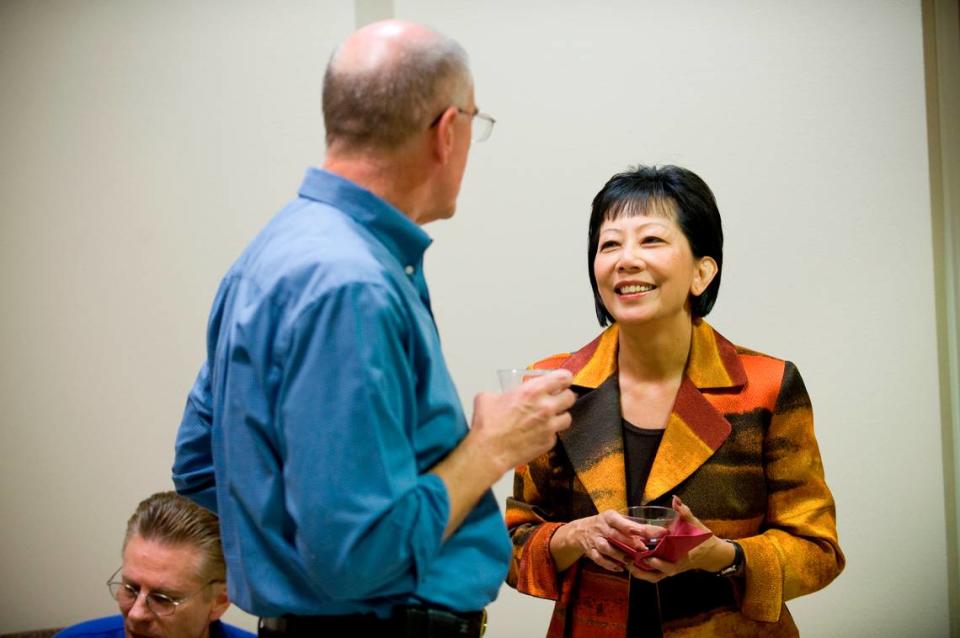
They fear that despite Assemi stepping down, he and his allies will still have control over board decisions.
“Even though Farid resigned, it’s not going to change anything, I don’t believe,” Imai said. “I think that he has still a lot of sway on the people on the board, and I think that their interest is not in line with taking care of the community, I don’t believe. Their underlying interest, anyway.”
Von Tersch also wouldn’t answer questions about whether Dunn is still allowed to sit in on board meetings as a guest. Dunn is Assemi’s friend and former banker.
Abundis, who is also Assemi’s former banker, has been on the hospital board for nearly two decades and appears to still hold a seat this year. Abundis took a year off the board in 2014. She continues to also sit on the board for Assemi’s for-profit medical school as its vice chair.
Plus, three more developers joined the board in the last year Assemi was the board chair. Mark Coelho and Leland Parnagian joined the board earlier this year. Late last year, another developer, Joshua Peterson, joined the board, along with Lori Bennett, who recently retired from her post as president of Clovis Community College.
The developers join board member McCaffrey, who is also a developer.
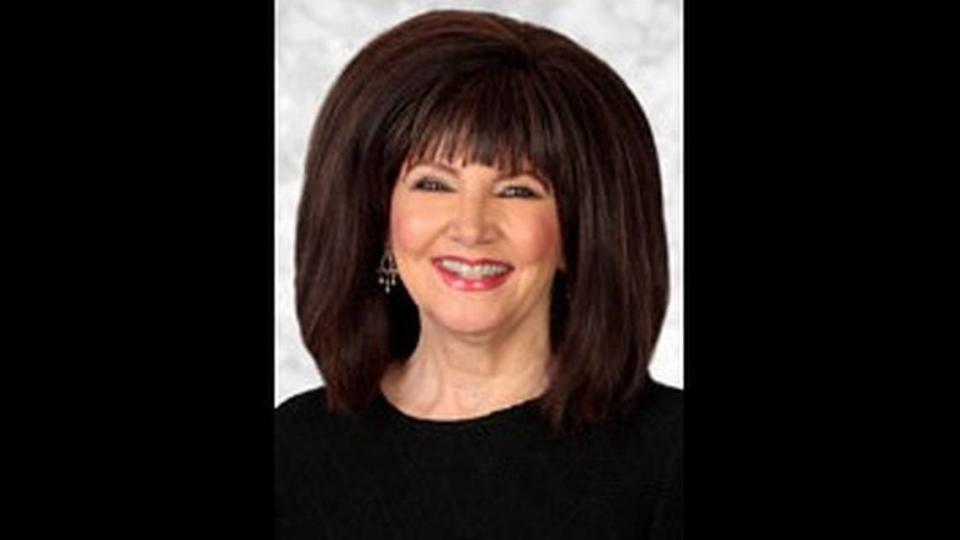
Kristen Savelle, co-executive director for the Rock Center for Corporate Governance at the Stanford Law School, said nonprofit board members, like any other board members, owe fiduciary duties to the nonprofit, including a duty of loyalty.
“Duty of loyalty means that officers and directors must act in a manner that they deem to be in the best interest of the nonprofit when making decisions, and cannot use their position in the organization to further their own personal interest,” Savelle told The Bee in written responses. “Personal interests can include outside business, professional or financial interests, interests arising from involvement in other organizations, the interests of family members, and so on.”
Developer and board member Coelho is no stranger to Assemi and Dunn. He worked for Assemi before.
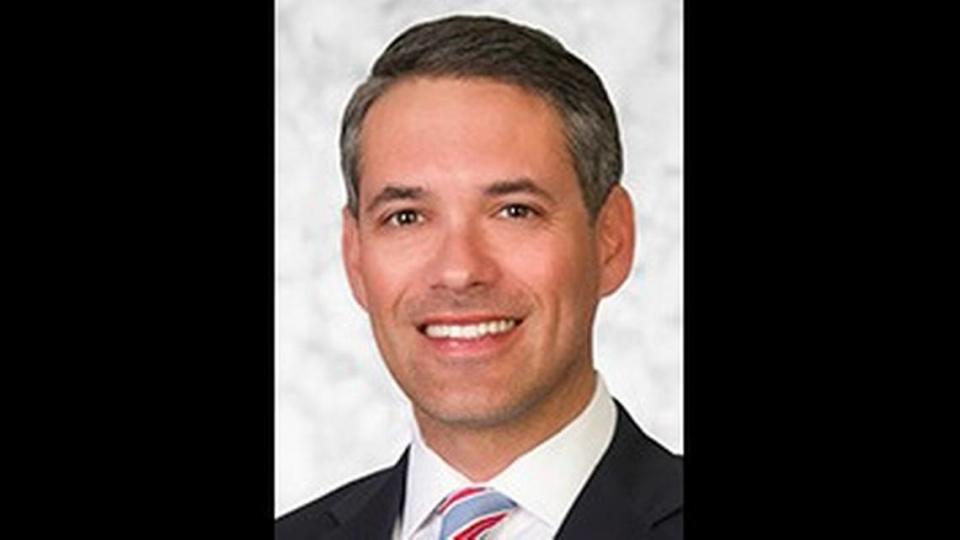
Coelho is listed as a manager for the Coelho Land Company, LLC, according to filings with the California Secretary of State’s Office.
Coelho currently serves on the governing board for AMOR (Alliance for Medical Outreach and Relief), along with Darius Assemi, other Assemi family members, and Tod Cook, among others, including Fresno County District Attorney Lisa Smittcamp. Farid Assemi and Dunn serve on AMOR’s advisory council.
AMOR is a nonprofit started by the Assemi family, and under its umbrella, it runs a hospital in Afghanistan.
From July 2012 to April 2015, Coelho served as a project manager for Granville Homes, owned by the Assemis, according to his LinkedIn profile. Coelho didn’t answer multiple calls by The Bee, but he provided a written response.
“I think it’s important to support organizations and causes you care about,” Coelho told The Bee in a written response via Von Tersch. “As someone who has grown up in the Valley, I can’t think of another organization that does more good or is more essential to this area than Community and I’m proud to serve on its Board.”
Developer and board member Peterson is also well-known to Assemi and his family because he works for them. Peterson is listed as the chief executive officer and chief financial officer for Wathen Castanos Peterson Homes, Inc., according to filings with the Secretary of State’s Office. The address listed for this company appears to be right across from Assemi’s for-profit medical school. Wathen Castanos Peterson Homes, Inc. is owned by the Assemis, according to a description of the Assemi Group, despite no mention of their names on state filings.
Peterson is also connected with two other companies with a similar name and is listed as a manager for WCP Developers, LLC. The mailing address listed in state records for WCP Developers is the same as one of two addresses listed for the Assemi Group, according to state records.
And other Assemi family members own a company with a similar name, the Assemi WCP, LLC, records show.
Peterson didn’t respond to inquiries by The Bee seeking comment.
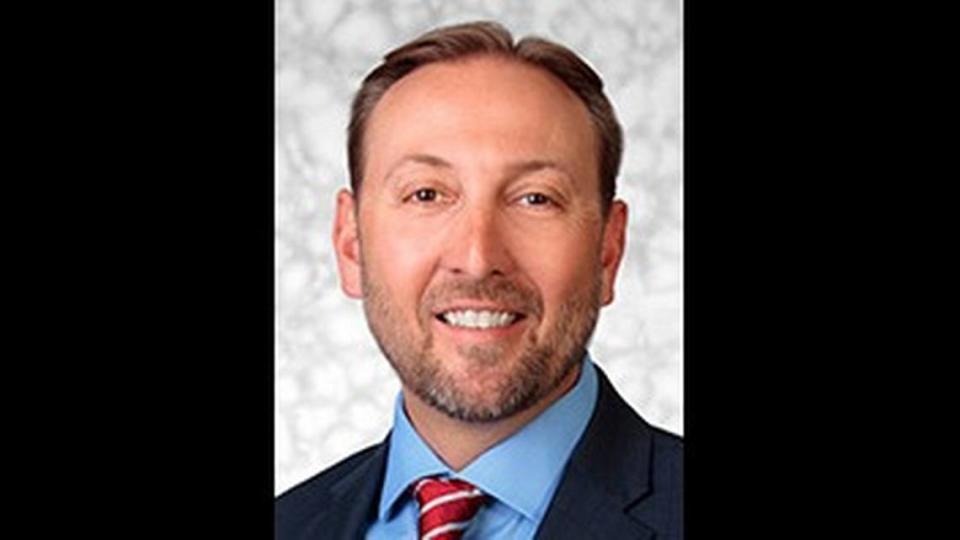
Developer and board member Parnagian is chief executive officer and chief financial officer for the G3 Development Company, which focuses on real estate development, according to state records.
He also serves as the president of Fowler Packing Company, where he’s worked since 2005, according to his LinkedIn profile. The Parnagian family has another company, G4 Enterprise, which is building a second Amazon fulfillment center in Fresno.
Parnagian and some of the Assemi family members tend to donate to some of the same political causes or candidates, such as to Fresno City Mayor Jerry Dyer’s One Fresno Foundation.
“Motivated by my strong belief in creating a healthcare system that is inclusive and accessible to all individuals in our region, I felt compelled to pursue a board seat,” Parnagian told The Bee in an email. “My experience with the on-site medical clinic at Fowler Packing has allowed me to witness the transformative effects of accessible and preventative healthcare.”
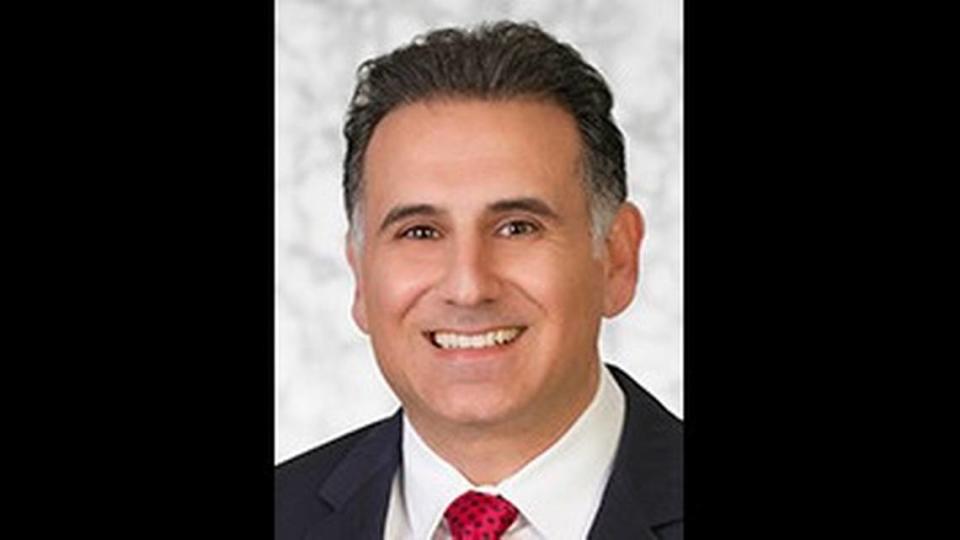
Bennett, who is also one of the newest board members who joined in late 2022, retired in January as the president of Clovis Community College.
In 2016, Bennett replaced Deborah Ikeda, who had been hired in 2013 to serve as the first president for the college. Ikeda is currently the chair for Assemis’ for-profit medical school’s board.
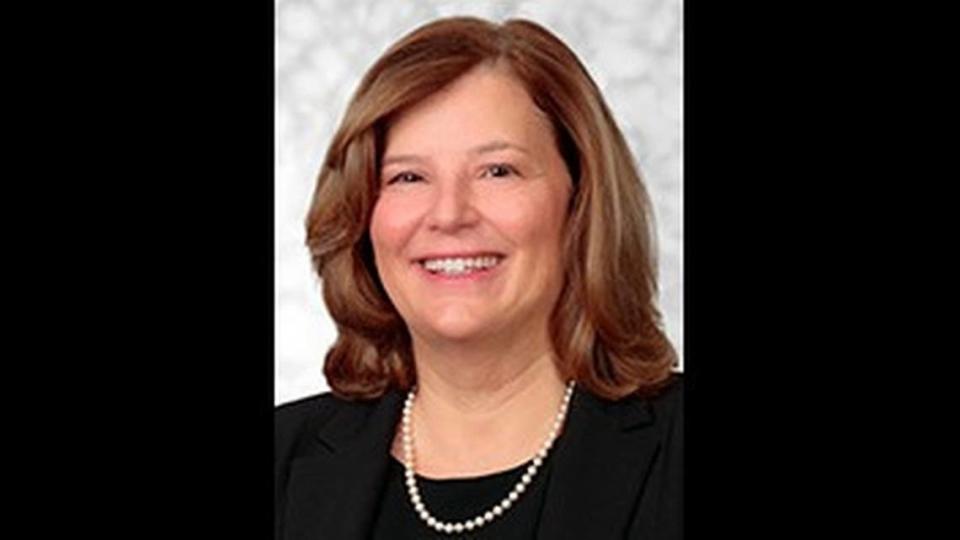
“Unfortunately,” Arias saId, “it is clear to me that CMC continues to be committed to spending tens of millions of taxpayer dollars in Clovis while exacerbating the overcrowding and declining quality of care in their downtown Fresno flagship hospital that serves the sickest, poor, and uninsured.”
A fiduciary duty
Savelle, with the Center for Corporate Governance at the Stanford Law School, said typically, the attorney general should be able to sue directors of a nonprofit organization for breach of fiduciary duty. But she said she didn’t know what laws, if any, California has passed to limit the liability of nonprofit directors and officers.
Follansbee, the former board member, said he has noticed that the board’s conflict of interest rules might have changed.
“You need to be independent with the respect to your position on the board,” he said, “and not have conflict of interest either by owning or controlling businesses that are impacted by (Community Health System) either favorably or unfavorably or ...that the board members themselves are so closely affiliated that they can’t make good, independent decisions.”
As a board member, he said, you have to be independent not only in fact, but also in appearance. For example, if he was considering auditing a company owned by one of his friends, and he was truly independent and had no financial connection to the business, but people knew he was affiliated or had a friendship with the owner, that would preclude him from auditing the company because his independence could be challenged.
The hospital’s board, he said, has put itself in that situation by choosing board members who have the appearance of at least not being independent, but they may be independent.
“If you take it to great extremes, you know, for conspiracy thinking you can say ‘Oh yeah well, Farid is in control of everything so he can get everybody to vote his way, I don’t think that’s possible,” he said. “That’s not really how the world works, but they’ve certainly created an environment where the independence may be in question because of all the, you know, affiliations there are between Farid and these people’s other business interests,” he said.
Board members out, others do business with the hospital
Among other changes, developer Jerry Cook and attorney John McGregor are no longer on the CHS board this year. Von Tersch said both of their fourth terms — 12 years — ended on Dec. 31, 2022. However, Cook joined the board in 2012, which means his fourth term would have been up in 2024.
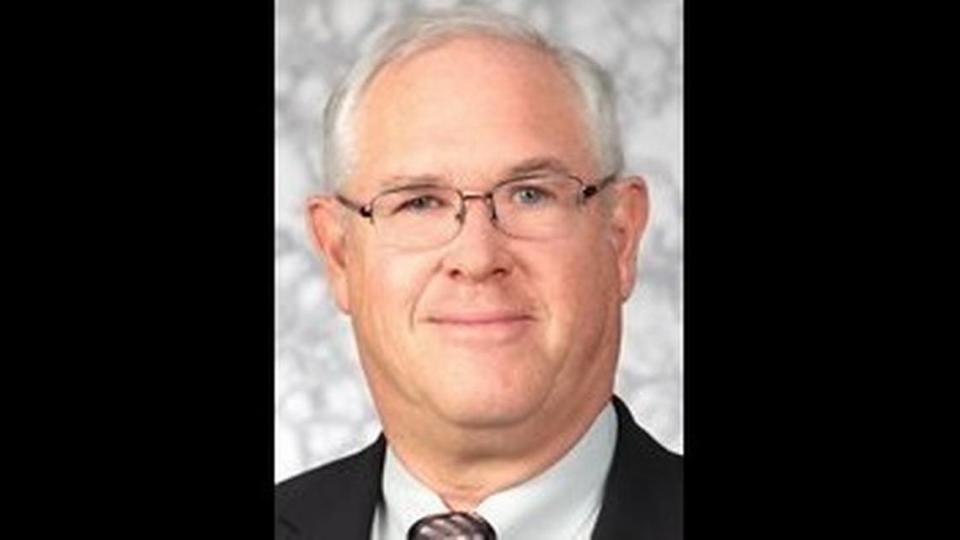
The Bee’s investigation revealed that Cook sold land to the hospital for a little more than $3 million in 2013 amid the explosive expansion of the Clovis campus. The property Cook sold to the hospital is adjacent to the Clovis hospital.
Cook paid a total of just under $800,000 for the property and sold it seven years later to the hospital for more than $3 million. CHS did not disclose this transaction in its tax filings with the federal government as required.
For The Bee’s investigation, Von Tersch said the purchase of the land from Cook followed an independent appraisal and the hospital hired an outside law firm to ensure the transaction was in compliance with state and federal laws. But the hospital denied a request by The Bee to see records associated with the sale by saying it didn’t want to set a precedent “of sharing Board minutes or materials” with the public.
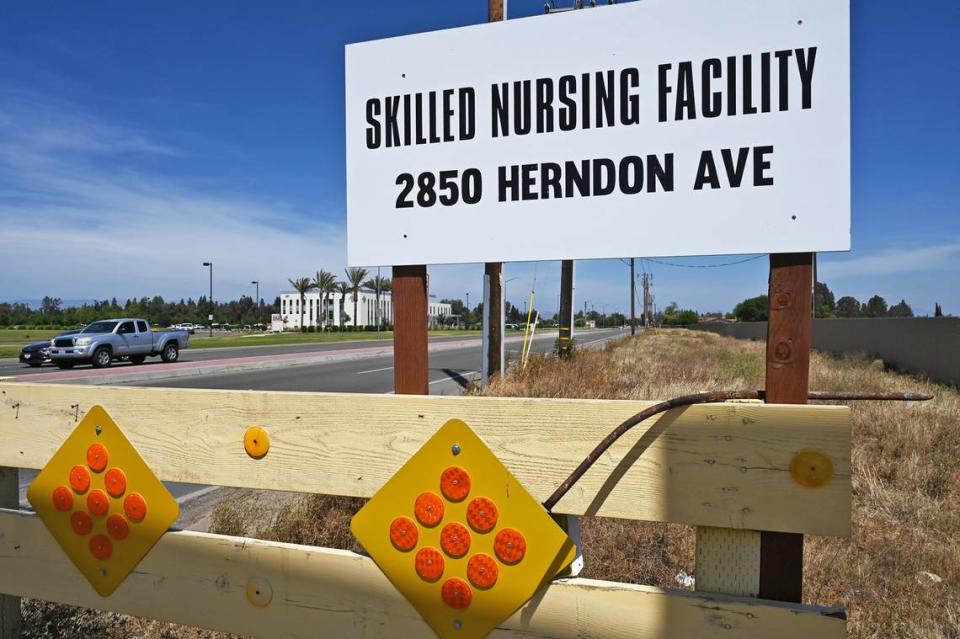
McGregor joined the CHS board in 2011, and his fourth term should have technically ended this year. He continues to sit on the board for Assemi’s for-profit medical school.
Additionally, all of the doctors currently serving on the hospital board either do business with the hospital, practice at the hospital or are a provider in the hospital’s insurance plan for employees and their families. According to a review by The Bee of old hospital tax filings, CHS in the past had some doctors serving on its board who had no affiliation or connection to the hospital.
For example, board member Dr. Ronald Bierma in May 2021 registered a new company, Community Medical Anesthesia Consultants, Inc., a month before Community Regional Anesthesia Medical Group, Inc., which used to do business with the hospital, filed for bankruptcy in June 2021, records filed with the Secretary of State’s Office show.
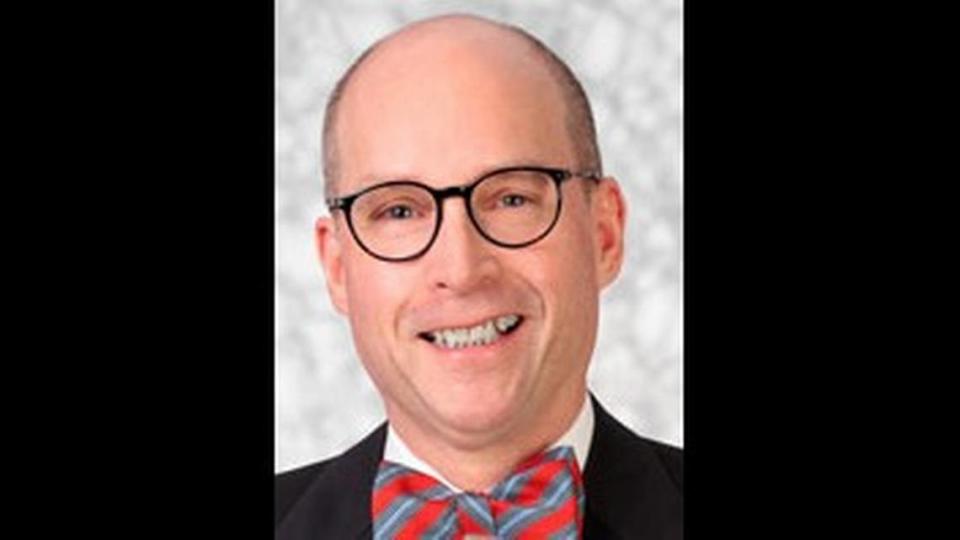
Carolyn Larsen, executive director of the company that was forced to file for bankruptcy, at the time said her company had worked with CHS for over 20 years, and it “took great pride in providing excellent services.”
“It is very disappointing that CRAMG has gotten caught up in the political battle raging in Fresno, and that (CHS) elected to allow the contract to lapse,” Larsen said in a statement at the time.
During an interview with CHS Chief Executive Officer Craig Castro in the fall of 2021, he confirmed to The Bee the hospital is now doing business with Bierma’s company. Bierma didn’t respond to inquiries by The Bee seeking comment.
Castro, said the previous providers had approached hospital officials and told them they were concerned they weren’t going to have a contract when it expired. The contract with the previous provider was set to expire in the summer of 2021.
“We had to go out and bid that contract which hadn’t been bid before. We felt that we were paying too much,” Castro told The Bee. “So, when we went out to bid, CRAMG (Community Regional Anesthesia Medical Group) refused to bid. They used the ruse that Community had an inside board member that was guiding the decision.”
Savelle said a potential conflict of interest doesn’t automatically prohibit a transaction, or subject the directors to liability for a breach of loyalty claim if certain key steps are taken.
“State law,” she explained, “may dictate that a transaction is valid if the director or officer discloses the conflict to the board, recuses themselves from deliberations and the vote on the transaction, and if the disinterested directors approve the transaction in good faith and reasonably believe it was fair to the organization.”
But in Bierma’s case, he’s the one who established a new company in advance of his competitor’s contract with the hospital expiring, making it impossible for him not to have been involved in the planning and negotiations.
Other CHS board members who are doctors, such as Dr. Wagih Ibrahim, Dr. Chandrasekar Venugopal, and Dr. Keith Boone, are either employed or participate in the hospital’s recently created medical foundation or are a provider in the hospital’s insurance plan for employees and their families. Being a provider in the hospital’s health insurance plan is a potential conflict because the hospital refers patients to those providers, and the providers make money from the insurance claims.
Only two of the 13 current board members appear not to have direct ties to Assemi or the hospital. Although one of them is in the ag business — an industry that Assemi is also involved in.
CHS board member Greg Estep is the managing director and chief executive officer for Olam spices.
CHS board member Ruth Quinto is assistant city manager for the city of Fresno.
Fresno City Manager Georgeanne White said when Quinto accepted her position with the city, she immediately informed her and Fresno City Attorney Andrew Janz that she served on the hospital board.
“She was notified at that time that due to a common law conflict, she would need to recuse herself from any involvement of business dealings between” the city of Fresno and CHS, White said in an email through the city’s spokeswoman. “Common law conflicts of interest are common in municipal governance and do not prevent the individual in question from serving on outside boards so long as there are appropriate recusals.”
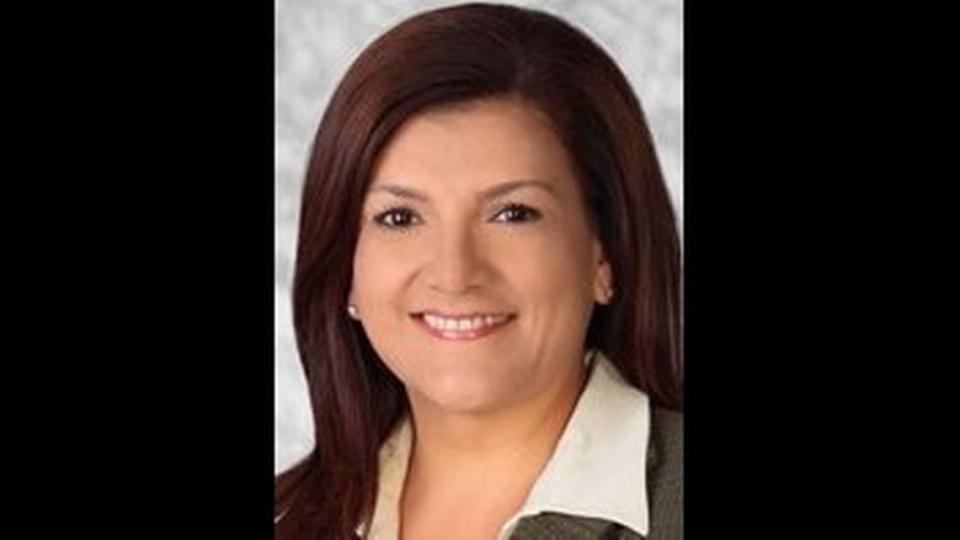
It’s difficult to know which board members have recused themselves, if any, from items tied to them since the hospital has refused to release to The Bee board materials. Board meetings are private and votes are neither publicly recorded nor are any meeting minutes made available to the public.
As a member of the CHS Board, Parnagian said, his “aim is to foster progress within the system by implementing cutting-edge technologies and providing compassionate care to our diverse community, with the ultimate goal of delivering exceptional patient care.”
Nonetheless, Arias remains skeptical. He believes, given the makeup of the board, CHS will continue to prioritize care for patients in Clovis — providing private rooms — while patients at the downtown Fresno hospital “are relegated to declining care in crowded hallways and outdoor tents.”
“Their actions are creating an emergency in care in an emergency hospital,” he said, “and growing an alarming inequity of care for too many of us.”
The Fresno community, Follansbee said, also needs to better understand the purpose of CHS. The community needs to realize, he said, that CHS is a “jewel, a real treasure” that should be operated for their benefit.
“This is really a treasure asset,” he said, “that the community needs to appreciate and take care of.”

 money
money 